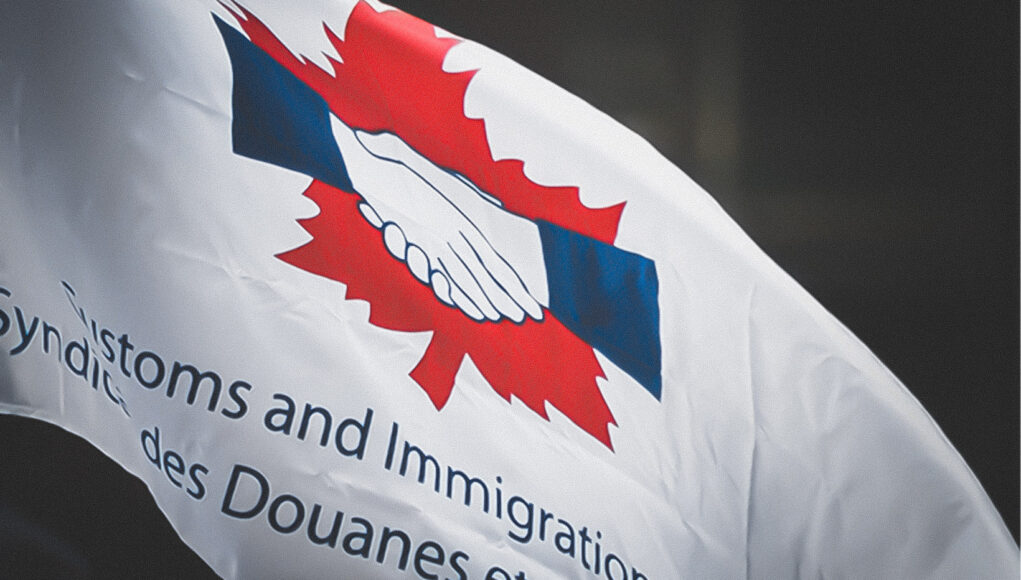Le président national du SDI, Jean-Pierre Fortin, a envoyé la lettre suivante à l’honorable Bill Blair, ministre de la Sécurité publique et de la Protection civile, le 5 juin 2020.
Monsieur le Ministre,
La semaine dernière, le monde entier a été témoin de la mort de George Floyd aux mains de la police de Minneapolis. Ces événements dévoilent les systèmes et la culture qui engendrent l’inégalité de traitement et le racisme au sein des forces de l’ordre et d’autres institutions. Le premier ministre du Canada et de nombreux représentants fédéraux ont souligné à juste titre que bien que cet événement ait eu lieu aux États-Unis, notre pays n’est pas à l’abri du racisme, des préjugés inconscients et de la discrimination systémique. Des chefs de police et des associations ont publié des lettres ouvertes réclamant une réforme. Les Canadiens se sont fait entendre haut et fort, ils ne toléreront pas l’injustice, et le Syndicat des Douanes et de l’Immigration (SDI) unit sa voix à la leur.
Comme vous le savez, le SDI représente quelque 11 000 membres, dont un grand nombre sont des agents des services frontaliers. Ils font respecter la loi, mais leur rôle est unique en ce sens qu’ils sont les premiers à entrer en contact avec des voyageurs du monde entier à leur arrivée au Canada.
Un grand nombre des membres du SDI sont racialisés et nous savons qu’ils en souffrent. Nous savons également que le racisme est présent partout, dans différents groupes et dans tous les lieux de travail. Son impact est d’une grande portée. Notre syndicat veut prendre des mesures concrètes dans le but de soutenir nos membres et tous ceux qui souffrent à cause du racisme, de la discrimination et des préjugés inconscients dans leur milieu de travail comme ailleurs.
Le premier ministre a souligné que beaucoup trop souvent nos systèmes actuels tolèrent et en viennent à considérer comme normales l’inégalité et l’injustice. Il a également ajouté que le gouvernement du Canada est prêt à travailler avec les Canadiens pour éradiquer le racisme et compte sur des alliés pour construire un pays plus juste, meilleur et plus équitable pour tous.
L’exécutif national du SDI a discuté des moyens que pouvait prendre notre syndicat pour devenir un tel allié et vous invite à travailler avec nous pour générer un véritable changement. Si les Canadiens sont appelés à lutter contre les préjugés inconscients, nous nous sommes demandé comment nous pouvions prendre part à ce combat. Nous croyons que pour faire de cette réforme sociétale une réalité, il nous faudra remplacer les méthodes et les procédures « réactives » actuelles par d’autres, plus « proactives ». Il ne fait aucun doute que le gouvernement fédéral et peut-être vous-même, en tant que ministre de la Sécurité publique, envisagez divers moyens pour régler ce problème. Les syndicats et les employeurs doivent être des partenaires actifs pour éliminer la discrimination systémique et mettre en place un modèle plus progressiste d’application de la loi.
Nous croyons savoir que de nombreuses organisations d’application de la loi offrent une formation sur la lutte contre le racisme. Le SDI veut s’assurer que ses membres disposent des outils nécessaires pour lutter contre la discrimination sous toutes ses formes. Une formation approfondie en personne contribuera grandement à prévenir les souffrances de nos membres ainsi que des personnes qu’ils rencontrent et desservent, que ce soit dans un bureau, à la frontière, à l’aéroport ou ailleurs. Les courtes « présentations » actuellement données aux nouvelles recrues sont trop superficielles et une formation en ligne ne nous permettra pas davantage d’équiper nos membres pour qu’ils puissent faire face au racisme systémique et aux préjugés inconscients.
Le gouvernement canadien a adopté une approche proactive pour lutter contre le racisme, en finançant diverses initiatives. Dans ce même esprit, nous croyons fermement qu’à long terme le financement de meilleures initiatives de formation profitera à tout le monde. Il est clair que les politiques et procédures « réactives » actuelles, comme celles dont le monde a été témoin dernièrement, sont coûteuses et inefficaces. L’investissement dans la formation des membres du SDI est un premier pas important pour les aider à devenir des alliés et des leaders plus solides dans la lutte contre le racisme et la discrimination sous toutes ses formes.
Veuillez agréer, Monsieur le Ministre, mes salutations distinguées.
Jean-Pierre Fortin
Président national
Syndicat des Douanes et de l’Immigration
Téléchargez la version PDF de cette lettre.[:]




